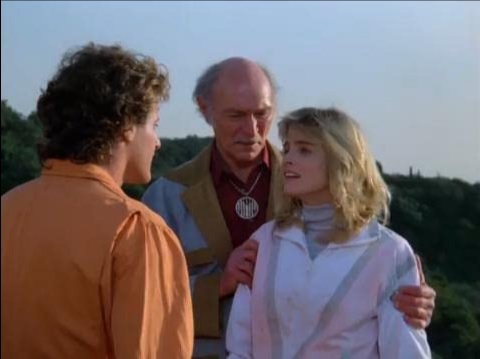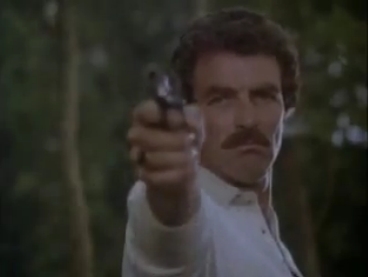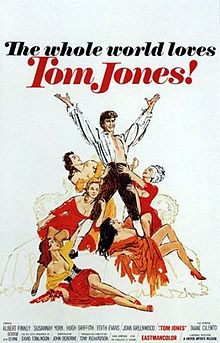Welcome to Retro Television Reviews, a feature where we review some of our favorite and least favorite shows of the past! On Wednesdays, I will be reviewing the original Love Boat, which aired on ABC from 1977 to 1986! The series can be streamed on Paramount Plus!
This week …. stuff happens!
Episode 4.8 “The Baby Alarm/Tell Her She’s Great/Matchmaker, Matchmaker Times Two”
(Dir by Ray Austin, originally aired on November 29th, 1980)
This episode opens with Doc, Gopher, and Julie all angry with Isaac. Apparently, while they were on shore leave, they went to see a church production of MacBeth, one that starred Isaac’s Aunt Tanya (Isabel Sanford) as Lady MacBeth. Apparently, the play was terrible and Aunt Tanya was even worse and somehow this is Isaac’s fault.
(Myself, I’m more confused by the idea of a church doing a production of MacBeth.)
Isaac, however, has one more favor to ask. Aunt Tanya is going to be a passenger on the next cruise, along with her husband, Charles (Mel Stewart). Isaac begs everyone to tell Tanya that she was great in the play. Everyone acts as if this is the most difficult thing that they’ve ever been asked to do but they finally agree. Even Captain Stubing agrees, even though he wasn’t at the play.
(Again, I’m confused as to why everyone is so upset over having to be polite to Isaac’s aunt. Were they all planning on throwing tomatoes at her and booing when she boarded the ship?)
All of the praise goes to Aunt Tanya’s head and, halfway through the cruise, she decides to leave her husband and go to Hollywood to be a star. Isaac finally has to tell Tanya that she’s not a good actress and that he had to beg his co-workers to be nice to her. Good Lord, how bad could she have been? The important thing, though, is that, by crushing Tanya’s dreams and confidence, Isaac is able to save the marriage.
Speaking of marriage, Mr. and Mrs. Clark (Troy Donahue and Terry Moore) think that it would be great if their son, Brett (Lorenzo Lamas, who looks nothing like either Troy Donahue or Terry Moore), married his friend-since-childhood, Cathy Cummings (Melissa Sue Anderson). Cathy’s parents (Farley Granger and Joan Lorring) agree! Brett and Cathy get so annoyed with all of the matchmaking going on that they decide to pretend that they’re sleeping together just to freak out their parents. And it works, despite the fact that the parents wanted them to get together in the first place. I guess the parents expected them to hold off on having sex until after the wedding. Get with the times, you boomers! Anyway, having fake sex causes Cathy and Brett to fall in love so I guess there will be real sex in the future …. but only after they say, “I do!” Dumb as this storyline was, Lorenzo Lamas and Melissa Sue Anderson were really cute together.
Finally, Cynthia Bowden (Susan Howard) boards the boat with her adorable baby. The baby has a sixth sense. If he cries, Cynthia knows that any nearby man is no good. For instance, no good Gig Wayburn (Stan Sells) is only interested in one thing and the baby cries as soon as he enters the cabin. Good, baby! Fortunately, when the baby’s father, Bill (John Reilly), shows up on the boat, the baby doesn’t cry at all and it leads to a happy reunion between him and Cynthia.
This week’s episode was pretty bland and I actually found myself struggling to remember much about it while writing up this review. Some cruises are like that, I guess.
Oh well….
….
….
….
….
Personally, I think I’d make a kickass Lady MacBeth.





